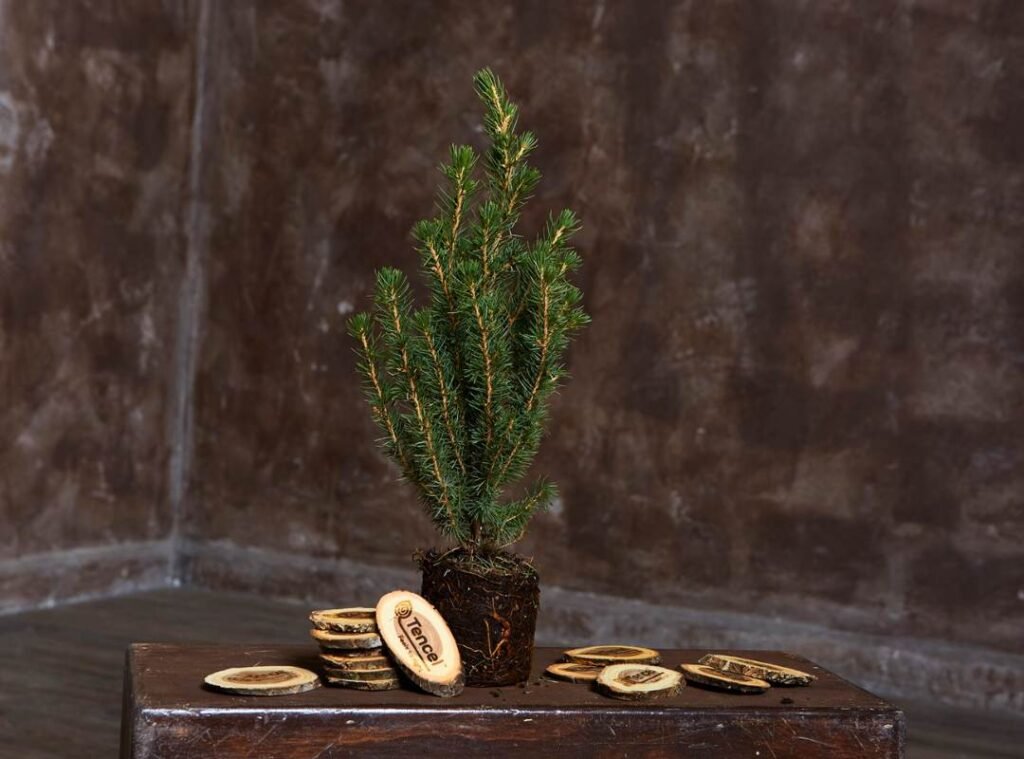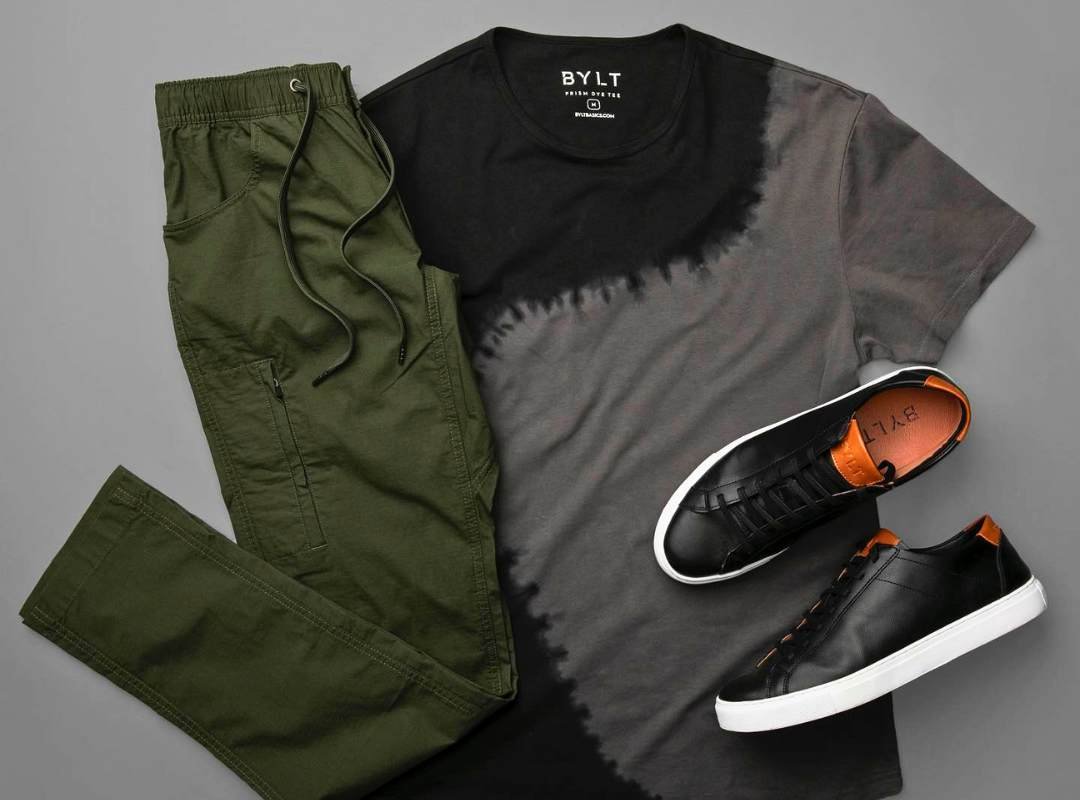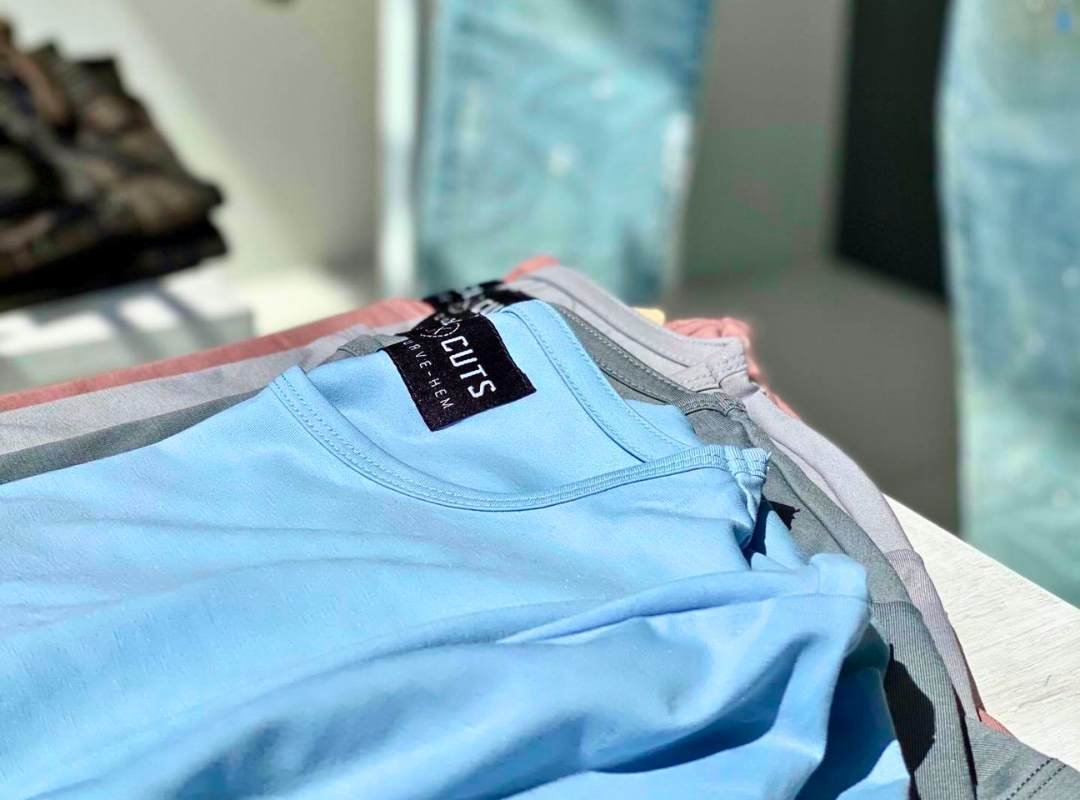The appetite for sustainable and comfortable attire for men’s activewear is growing.
Amid this shift, Tencel Fabric has emerged as a pivotal innovation. This material, created by Lenzing AG, marks a significant evolution in fabric technology, addressing eco-conscious values and the demand for high-performance wear.
Lenzing AG was founded in 1892 and is headquartered in Lenzing, Austria. The company began as a pulp and paper mill, capitalizing on the region’s abundant natural wood and water resources.

Through years of dedication and innovation, Lenzing transitioned into producing cellulose fibers such as viscose, modal, and lyocell, globally recognized under the brand name Tencel, all derived from wood pulp.
Today, Lenzing is hailed as a leader in creating botanic and eco-friendly fibers, drawing from the renewable resource of wood to fashion products that substantially lessen environmental impact. This expansion was further solidified in 1985 when Lenzing went public, listing on the Vienna Stock Exchange, underscoring its commitment to sustainability and innovation in the textile industry.
What is Tencel?
Tencel is a brand name for fibers known as lyocell and modal. These fibers originate from the natural cellulose found in wood pulp, offering a soft, breathable, and durable option for clothing.
Lenzing AG’s journey from a traditional pulp and paper mill to becoming an avant-garde in producing environmentally friendly fibers underscores a remarkable transition.
Their dedication has propelled Tencel Fabric onto the global stage, standing out for its commitment to sustainability and cutting-edge innovation. This fabric’s journey from concept to global adoption underscores a changing attitude in men’s fashion that prioritizes the planet without compromising performance or aesthetic appeal.
Tencel is a Sustainable Alternative to Cotton
The video below showcases a dialogue between Nick from Stridewise and Mohsin Sajid, a denim connoisseur with a rich background as a teacher, historian, advisor, and brand innovator.
They talk about the environmental challenges of cotton cultivation, such as contamination, soil deterioration, and extensive water consumption, and introduce Tencel (Lyocell) as a more sustainable option.
Their conversation explores Tencel’s durability and lesser ecological footprint than cotton, underscoring its viability in denim production and beyond. They debunk myths regarding Tencel’s aesthetics and quality, demonstrating its capability to rival traditional denim’s properties while presenting an environmentally responsible choice.
The conversation further covers the hurdles in authenticating organic cotton and Tencel’s traceability and certification, confirming its eco-friendly credentials.
Mohsin narrates his experience incorporating Tencel into his professional endeavors, highlighting its economic and environmental benefits, such as crafting denim that competes with conventional cotton in allure and quality.
How Tencel is Produced
Tencel’s production utilizes a closed-loop process that significantly reduces waste and pollution. This method recycles water and reuses solvents at a rate of more than 99%, setting a new standard for fabric manufacturing with a minimal ecological footprint.
Tencel (Lyocell) fibers are made with REFIBRA technology and turn cotton waste and wood into fabric, using at least 30% recycled content from old textiles and scraps that might otherwise be thrown away or burned.
This method also meets the Recycled Claim Standard. Lenzing contributes to a more sustainable fashion cycle by recycling materials and reducing the need for new raw materials. REFIBRA™ technology makes production more efficient and ensures these eco-friendly fibers are as white as regular Tencel.

Unlike traditional rayon production, which can be resource-intensive and pollutive, Tencel’s process is efficient and sustainable. Trees grown in responsibly managed forests are the backbone of Tencel production, ensuring that the fabric looks good and does good for the planet.
Properties and Benefits of Tencel
Tencel sets a new benchmark for activewear with its exceptional properties. Its fibers are celebrated for their incredible softness, offering unparalleled comfort. Additionally, Tencel excels in breathability and moisture-wicking capabilities, keeping wearers dry and comfortable during intense activities.
Durability is another hallmark of Tencel, ensuring that garments feel luxurious and withstand the rigors of daily wear and frequent washing.
When compared to traditional materials like cotton, Tencel offers significant environmental advantages. Its production requires less water and land, generating a smaller carbon footprint. Beyond these benefits, Tencel’s biodegradability and compostability stand out, ensuring that garments can return to the earth harmlessly at the end of their lifecycle.
Properties Comparison Table
| Property | Tencel | Cotton |
|---|---|---|
| Softness | Exceptionally soft | Soft |
| Breathability | Highly breathable | Moderately breathable |
| Moisture-wicking | Excellent | Good |
| Durability | Highly durable | Durable |
The combination of these attributes makes Tencel Fabric an outstanding choice for active clothing. Its superior performance, comfort, and minimal environmental impact position Tencel as the fabric of choice for those who do not want to compromise between quality and eco-friendliness.
Tencel’s Impact on Men’s Activewear
Tencel’s integration into men’s activewear is reshaping perceptions of performance wear.
Several brands are integrating Tencel (Lyocell) into their men’s activewear collections. These brands tout Tencel’s benefits, including its moisture-wicking properties, durability, softness, and odor resistance, which are critical for high-performance athletic wear.
Toad&Co’s use of their proprietary “Samba” fabric, made predominantly from Tencel, in products like t-shirts and underwear showcases the fabric’s applicability across various garments. Similarly, Allbirds’ adoption of Tencel fleece for basics underscores the material’s comfort and sustainability credentials.
Bamtech was the first U.S.-made activewear brand to market Tencel in men’s sporting apparel, alongside On’s use of Tencel and modal, and Tentree’s commitment to sustainable fabrics like Tencel for joggers, t-shirts, and shorts signifies a shift towards eco-conscious manufacturing in the sportswear industry.
This growing trend among activewear brands, including MPG Sport, Coalatree, Veja, Janji, Kozm, Ten Thousand, Iffley Road, and Vuori, which focus on sustainable fabrics, proves the industry’s move towards more environmentally friendly alternatives.
Tencel (Lyocell) enhances performance in garments designed for movement by efficiently managing moisture, ensuring the wearer remains cool and dry. Furthermore, its unparalleled softness and breathability contribute to an elevated comfort level, making it an ideal choice for extended wear or intense physical activities.
Challenges and Considerations
Despite its many advantages, Tencel’s production is not without its challenges. The use of chemicals and the energy required in the closed-loop process have sparked discussions about the fabric’s true sustainability.
Addressing these concerns, transparency and rigorous certifications play a crucial role in verifying Tencel’s environmental credentials. Certifications from reputable organizations ensure that Tencel’s production adheres to high environmental and social standards.
Continuous improvement in production efficiency and exploring greener chemical alternatives are vital to enhancing Tencel’s sustainability potential. Investing in renewable energy sources can also reduce the carbon footprint associated with Tencel’s production.
By addressing these challenges head-on, the fashion industry can further Tencel’s sustainability potential, making it not just a fabric of choice for today but also a blueprint for the future of eco-friendly textiles.
Final Thoughts
Tencel stands at the intersection of innovation and sustainability, redefining the landscape of men’s activewear. With its superior comfort, durability, and moisture management, Tencel delivers unmatched performance that meets the dynamic needs of men worldwide.
Beyond the immediate benefits to the wearer, Tencel signifies a broader commitment to environmental stewardship. Its production, characterized by reduced water and energy usage, minimal waste, and reliance on sustainable forestry, sets a new standard for the textile industry.
The emergence of Tencel Fabric shows the fashion industry’s potential to embrace sustainable practices without sacrificing quality or performance.
As more athleisure brands integrate Tencel into their products, the industry moves closer to a future where fashion looks good, feels good, and does good for the planet. Tencel’s role in this shift is undeniable, marking a significant step forward in eco-friendly fashion.














